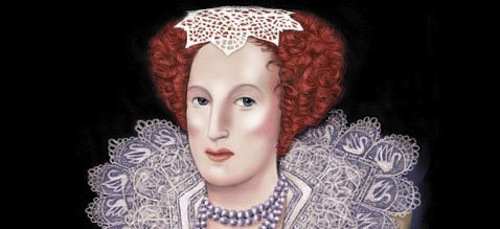Psalm 52
Tyrant, why swell’st thou thus,
Of mischief vaunting?
Since help from God to us
Is never wanting.
Lewd lies thy tongue contrives,
Loud lies it soundeth;
Sharper than sharpest knives
With lies it woundeth.
Falsehood thy wit approves,
All truth rejected:
Thy will all vices loves,
Virtue neglected.
Not words from cursed thee,
But gulfs are poured;
Gulfs wherein daily be
Good men devoured.
Think’st thou to bear it so?
God shall displace thee;
God shall thee overthrow,
Crush thee, deface thee.
The just shall fearing see
These fearful chances,
And laughing shoot at thee
With scornful glances.
Lo, lo, the wretched wight,
Who God disdaining,
His mischief made his might,
His guard his gaining.
I as an olive tree
Still green shall flourish:
God’s house the soil shall be
My roots to nourish.
My trust in his true love
Truly attending,
Shall never thence remove,
Never see ending.
Thee will I honour still,
Lord, for this justice;
There fix my hopes I will
Where thy saints’ trust is.
Thy saints trust in thy name,
Therein they joy them:
Protected by the same,
Naught can annoy them.
MARY SIDNEY HERBERT
Mary Sidney Herbert, Countess of Pembrokeshire (1561-1621), was a major poet: the fact that she inherited great wealth and privilege shouldn’t discolour our vision of her achievement. While “fitting the approved categories for women – elegy, encomium and translation”, her output also challenged and expanded them. Her work influenced many writers who succeeded her, including William Shakespeare.
Mary is probably best known today for her metrical versions of the psalms – like this week’s poem. The project was originally that of her elder brother, Philip Sidney, and it was part of a wider Protestant movement to make the sacred texts available and accessible in the English vernacular. After Philip’s death, Mary revised some of his versions, and added a mass of new material, from Psalms 44 to 150. The Geneva Bible was her most important source, and it’s likely that, as a classical scholar, she would have consulted Latin translations by the theologian Theodore Beza. She used more than 120 different verse forms, and sometimes wove allusions to her own current political and personal concerns into the songs of David. Her psalms never sound like translations: they ring out as original poems in their own right.
The quatrains of Psalm 52 follow an ABAB-rhymed pattern of iambic trimeter alternating with dimeter, and the dimeter line always has a feminine ending. This ending often comprises a two- or three-syllable word, although in the last two stanzas the rhyme is strung almost lightheartedly over separate words (justice/trust is, joy them/annoy them). The effect of the rhyme scheme overall is vigorous and angry. David’s song itself is a cry of rage, a denunciation of the murderous treachery of Doeg the Edomite. Mary Sidney Herbert’s canvas is smaller, but the rage is pointed by rhetorical flourishes that, working with the rhyme and metre, increase the piquancy of tone. She was trained in the art of rhetoric, and her use of anaphora, epistrophe, polyptoton, et al, is elegant – but never merely elegant.
Her creative approach to translation is revealed not only in her syntax but in her choice of figure: for example in verse two, she prefers “knives” to the Geneva translators’ “razor” and vividly evokes an image of vicious tongues metamorphosing into reddened blades. And then the metaphor is brilliantly expanded: “words” themselves are imagined as “gulfs,” an image not in the Geneva translation. The “gulfs are poured” suggesting a primary metaphor of water, but also retain the sense of “gulf” as a moral abyss separating truth and falsehood.
The tone softens noticeably in the eighth verse, where David has accomplished the transition from uttering his hatred of Doeg to expressing his love of God through the salving metaphor of the young olive tree rooted in nourishing soil. Now Mary seems to summon the tone and language of the love poem: “My trust in his true love / Truly attending, / Shall never thence remove, / Never see ending.” This recalls Philip’s well known and lovely Song from Arcadia, and, more significantly, it looks forward, I think, to George Herbert’s constructions of a God almost as intimately knowable to the human soul as a lover, parent, child or favourite dinner guest might be. George Herbert was distantly related to Mary, and one of the extended family of younger writers to whom she was materfamilias.
As for any political or personal subtext in Psalm 52, I am unqualified to pursue that line of questioning, and confident, in any case, that the poem stands perfectly happily without it. But, of course, it would still be fascinating to know if the poet had some Doeg-like character at the back of her mind, adding ire to her wit as she worked on the psalm. The original Doeg seems to have been an interesting type of villain, a great scholar but a jealous and insecure man who turned to treachery and murder. There must have been a number of Doegs in the courts and households Mary frequented. Public life is their natural habitat, after all. There they perennially flourish, and the eventual triumph of justice over calumny is rarely as predictable as it is for the psalm-makers.

